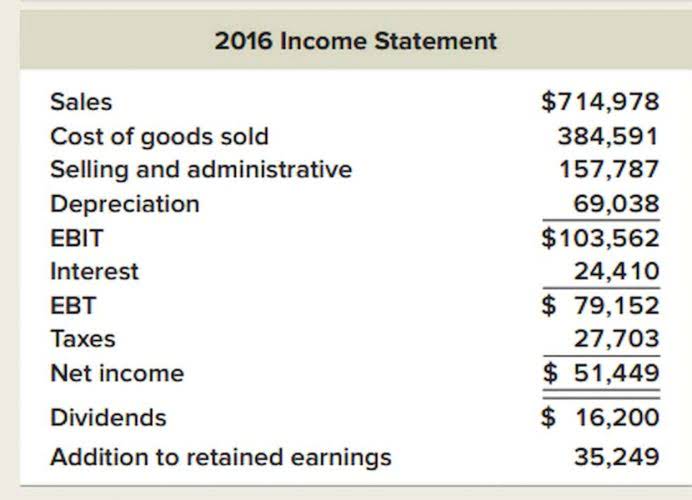What Are the Roles and Responsibilities of a Bookkeeper: An Essential Overview

Outsourcing can be a convenient option for businesses without the expertise or resources to manage payroll internally. Here’s what you need to bookkeeping and payroll services know about these two roles to determine which one your business needs. An aspiring bookkeeper can enter the profession with a two-year or four-year college degree. Average entry-level salaries approach $38,000 per year, according to Payscale. From this viewpoint, bookkeeping offers an appealing path to an accounting career.
Tasks of an Accountant
These include the Certified Public Accountant certified bookkeeper (CB) designation offered by the American Institute of Professional Bookkeepers. Depending on the employer, bookkeepers may qualify for other forms of compensation, such as performance bonuses. It’s also a good idea to utilize these programs if you need to comply with several regulations, you need to save time on payroll, or you want to speed up the process. Working with a professional will likely save you a lot of headaches and reduce errors. It’s smart to check in regularly—especially when you’re first trying a service—to ensure nothing happens that could put you at risk.
Should you hire a bookkeeper or an accountant?
- Never leave the practice of bookkeeping (or your business assets) to chance.
- Bookkeepers ensure that all of a company’s expenses, income, and transactions are recorded in the company’s books and reconcile the company’s financial accounts, typically on a monthly basis.
- There you have it—all of the main skills that a bookkeeper can bring to your business.
- The editorial asserted that not enough new bookkeepers are emerging to replace professionals aging into retirement.
- Even if you’ve paid all taxes due, keep a record of local, state and federal taxes paid.
It’s packed full of useful tips on how to get started, how to maintain the books and what to look for when choosing the right software to meet the Making Tax Digital (MTD) initiative. However, all of the things we’ve mentioned above don’t necessarily mean you need to outsource to a professional. While it sounds like hard work, it’s quite straightforward when you know what you’re doing. That’s where bookkeepers come in, as they can help make sure your business stays aligned with the relevant laws. Stacy Kildal is owner/operator of Kildal Services LLC—an accounting and technology consulting company that specializes in all things QuickBooks.

How to Budget for Bookkeeping Services

Purchase receipts should always be kept as proof that the purchases took place. Maintaining bookkeeping tasks is essential for the stability and success of small businesses. With so many moving pieces (including assets and liabilities, and income and expenses), small business owners must stay on top of it all. Although payroll is a common area for many bookkeepers, the level of competence in this subject might vary among bookkeepers. This handbook will provide a comprehensive overview of fundamental concepts in accounting, bookkeeping, and payroll. That said, bookkeeping is more https://www.bookstime.com/ than just dropping numbers into a spreadsheet—it takes meticulous analysis and just enough legal know-how.

Take a bookkeeping course.
These resources assist in managing subsidiary accounts, processing financial transactions, and generating reports for analytical review against industry benchmarks. Regularly using these tools allows for systematic reconciliation of accounts and ensures catch-all monitoring of a company’s fiscal health. Bookkeepers are tasked with ensuring that all financial records comply with established accounting standards and procedures. They meticulously record transactions to maintain a clear audit trail and prepare crucial reports such as the trial balance, which forms the basis for financial statement preparation.
best payroll methods for businesses

When you first begin the bookkeeping journey, collect everything you have that could be relevant to establishing financial history. Bookkeepers use a chart of accounts to see all of the accounts in a company’s general ledger. In many instances, an accountant prepares the initial chart, and the bookkeeper references it while recording transactions. For both sales and purchases, it’s vital to have detailed, complete records of all transactions. You’ll need to note the amount, the date, and any other important details to ensure you can accurately summarize your finances when it comes time for tax season.
Bookkeepers keep an eye on these transactions and make sure they are being categorized correctly. Popular solutions, such as Gusto and OnPay, have a base price of around $40 per month. To narrow down your prospective options, check out the best payroll software for small businesses. If you have a proper payroll system, you can calculate the gross pay and withholdings for each employee automatically. Done right, you’ll be able to get an overview of all payroll-related expenses and transactions. Jami Gong is a Chartered Professional Account and Financial System Consultant.
Prepare Financial Statements
The allotted compensation can significantly impact employee retention and your business’ cash flow. Now that you know what payroll accounting is and why it matters, you may wonder how to get started. The process involves determining the primary items for payroll accounting and gathering payroll-related documents. In this article, we explain everything you need to know about payroll accounting, how to get it done and when to start using payroll software.
- Because the tax status of individual employees can change for all sorts of reasons, payroll can become an admin headache.
- Regularly using these tools allows for systematic reconciliation of accounts and ensures catch-all monitoring of a company’s fiscal health.
- Bookkeeping plays a crucial role in the overall business strategy of a company.
- There are many ways to divide bookkeeping responsibilities and leverage powerful technology and small business accounting software for more accurate expense tracking.
- But they won’t be able to help you with tax planning or handling your tax return.
Preparing the Books For an Accountant
This helps in accurately tracking income and expenses, and aids in understanding the financial health of the business. In summary, attention to detail and understanding of accounting principles are two crucial skills for any bookkeeper. Continuous training and experience in applying these skills contribute to their ability to efficiently manage a company’s financial records and provide valuable insights for strategic decision-making. Bookkeepers are responsible for managing financial records, and one of their core skills is attention to detail. This skill is crucial in ensuring accuracy and minimizing errors in complex data sets. Bookkeepers must be diligent and meticulous when recording transactions, as even minor mistakes can have significant implications for a company’s finances.
